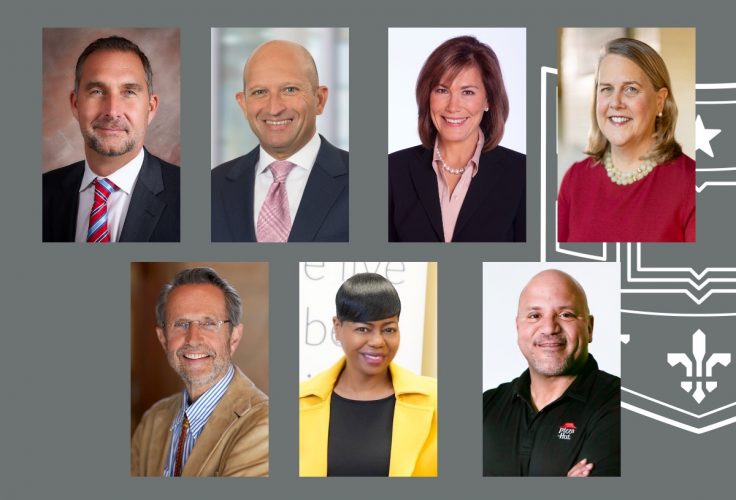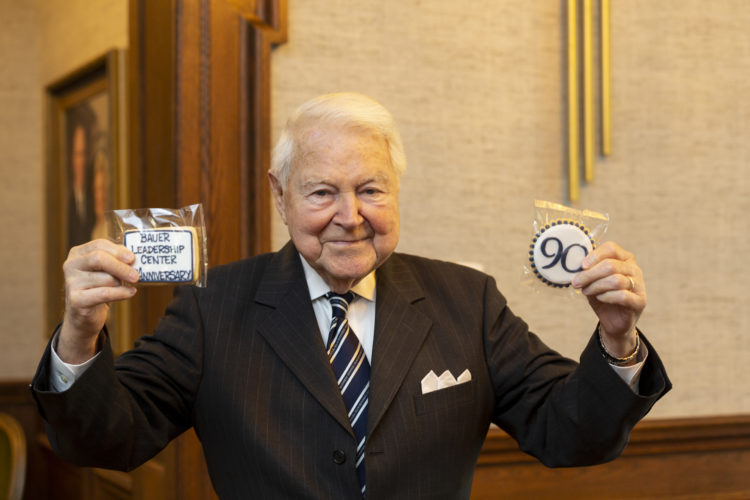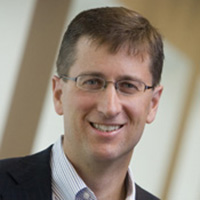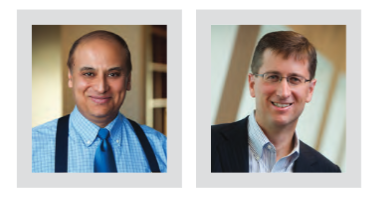Claire Dempsey, a student associate for Olin’s Bauer Leadership Center, wrote this for the Olin Blog.
This spring, 40 students embarked on a journey of reflection about who they are and how they want to show up as leaders in society. Since its inception in spring 2012, the Defining Moments course has guided more than 600 students through the trajectory of a leader’s character, leadership framework and career through the lens of “defining moments.”
The course also helps aspiring business leaders examine how they can prepare themselves to face their own defining moments with insight and integrity.
Beginning in January 2023, students welcomed leaders from a diverse set of organizations, including Pizza Hut, Nestlé Purina PetCare and the United Way of Greater St. Louis. Facilitated by Kurt Dirks and Bill Bottom, students examined beliefs, principles and values that best define them as leaders. For many students, this experience served as a capstone in preparation for graduation.
Reflecting on the insights shared by Aaron Powell, global CEO of Pizza Hut, one student remarked: “Powell’s presentation gave me a sense of direction for my next steps. Specifically, his philosophy of learning my superpowers, leveraging them and doing what makes me happy caused me to reflect on my own strengths and what makes me happy.”
It’s important to enjoy your work
Despite the differences across industries, there were definite trends among the lessons that leaders shared. Like Powell, Bob Chapman—CEO and chairman of Barry Wehmiller, a global supplier of manufacturing technology—also emphasized the importance of enjoying your work.
“I was impressed with Chapman’s dedication to the people in his organization, especially 20 or 30 years ago, when people metrics and people-centered businesses were not as popular as they are now,” another student said. “The most interesting thing I learned is that working is clearly still fun for him. At almost 80 years old, he’s figured out how to sustain an incredible passion for his work for the last 40 years. If I could find some sort of leadership role where I can be as excited and passionate as he is, I think I would (succeed) as a leader.”
As spring comes to a close, students in this semester’s Defining Moments class look forward to learning more about overcoming real-world challenges and coming into their own as values-based leaders.
Learn more about Defining Moments and other leadership initiatives sponsored by the Bauer Leadership Center here.
Course overview
The Defining Moments course considers the trajectory of leaders’ character, leadership and career through the lens of “defining moments.” It also examines how aspiring business leaders can prepare themselves to face their defining moments with insight and integrity. The course examines these questions by learning from senior business leaders who visit and talk about their “defining moments.” The conversations are supplemented with cases and readings on leadership and character. Throughout the discussions, students are encouraged to think about and articulate the beliefs, principles and values that will define them as a leader. For many students, it provides a capstone as they get ready to graduate.
Spring 2023 presenters
Pictured at top, left to right, starting on the top row.
- John Mozeliak, president of baseball operations, St. Louis Cardinals
- Lal Karsanbhai, CEO, Emerson, MBA 1995
- Sue McCollum, CEO, Eagle Brands and Double Eagle Distributing, JD 2014
- Nina Leigh Krueger, CEO, Nestlé Purina Petcare, MBA 1994
- Bob Chapman, chairman and CEO, Barry Wehmiller
- Michelle Tucker, CEO, United Way
- Aaron Powell, global CEO, Pizza Hut, BSBA 1993











